September 21, 2014
I frantically try to study the differences between shearwaters in the thin light available at five-thirty in the morning. Cory's is brown with a white stomach, the Sooty is brown all over...and they all look so similar to the storm-petrels and jaegers. "Trying to brush up?" the man sitting behind me asks. "This is my first pelagic trip so it will be the first time I really get to see these seabirds. Thankfully, I just finished school. I'm still really good at studying at the last minute" I tell him. He chuckles, and launches into an explanation on how you can tell a shearwater from a jaeger when they are all at a distance. "Shearwaters have really stiff wingbeats. It's almost as if their wings are made of cardboard. Jaegers, meanwhile, are real acrobats and can do all sorts of quick, fancy maneuvers." "I really want to see a phalarope," I tell him. He immediately launches into an explanation about the tiny birds, and then continues with "during my Big Year..."
That's all I hear. "Omygoodness you're Greg Miller!" I sound like some teenage fangirl, and I can feel myself turn red. I try to regain some of my dignity, but Greg Miller does not seem to mind; he is laughing at my outburst. I can imagine that the real-life equivalent of Jack Black's character in the birding movie "The Big Year" must get this a lot. I cannot help it; before we get off the bus I have to sheepishly ask him to sign my bird book. He obliges, again with a laugh.
The Chatham harbor is quiet in the early morning. It is still dark and cold. But that does not stop the fierce activity around us. Cormorants patrol the slick, wooden docks. Tree swallows stream above us. The vivacity dispels the sleepiness of the pre-dawn, and as the gray clouds dissipates we board the Yankee II. I clamber up onto the top deck of the fishing vessel and watch gleefully as the water begins to churn beneath us. The spray rises as our pelagic trip finally embarks from the dock, forging past the cormorants and the tree swallows and out into the world of pirates, leviathans and seabirds.
That humans can cross beyond our realm of sturdy ground onto the ocean is mind-blowing. The wind is fierce, and the fishing boat pitches and tosses. Somehow, someone managed to figure out how to engineer a vessel that allows humans to move beyond the boundaries of land. Although the pitching is unnerving, it is also enthralling to feel so vulnerable. Yet all of this is engulfed by the wonder of watching the seabirds soar around us. Flocks of Laughing Gulls look as though they are playing as they dive into the spray and maneuver the air currents that whip my hair into my face and make me so poignantly aware of how tiny I am in the scope of the enormous ocean.
The trip leaders, Blair Nikula and Peter Trull, are incredible sea birders. Like David Sibley, they can identify seabirds before I even see them. They begin "chumming"- throwing greasy popcorn behind the boat to attract seabirds. Nothing comes in. But Peter Trull does not seem worried. He leans over the edge of the boat, looking out over the horizon.
And then, suddenly, chaos breaks loose. Greg Miller had been eating a bag of Cape Cod potato chips when he suddenly jumps up. "Red-necked Phalaropes!" he yells out, potato chips in one hand as he gestures emphatically with the other. I race to the opposite side of the boat in time to see a flock of six tiny shorebirds with long bills and frantic wingbeats careen across the surf and vanish into waves. How he identified them while focusing on potato chips, I'll never know. But I got to see my first phalaropes, now matter how brief the view.
No one is sitting down anymore. Cameras are clicking like mad and people rush back and forth from one side of the boat to the other as one by one, all four Atlantic shearwaters are identified. Cory's, Greater, Manx, and Sooty Shearwaters run across the water as they take to the air. Small pools form on impact with the shearwaters' webbed feet as they carve temporary trails through the water. It is as though a boundary has been crossed, and there are now birds all around us. Laughing Gulls and Common Terns wing about the deck while swooping down to take advantage of the chum bouncing in our wake. The air is filled with their toy-like calls. Whales are sighted in the distance and add to the bedlam. "Where there are whales, there will be birds" Peter Trull explains. As a high school science teacher, he cannot help but teach the broader ecology of the ocean as he points out birds. He has an alluring teaching voice, the kind that makes me want him to keep talking because he teaches things so well. I cannot believe how simple and brilliant his logic is- if the whales are feeding, they will be disturbing fish and pushing them close to the surface. From there, the seabirds have a vantage point to feast.
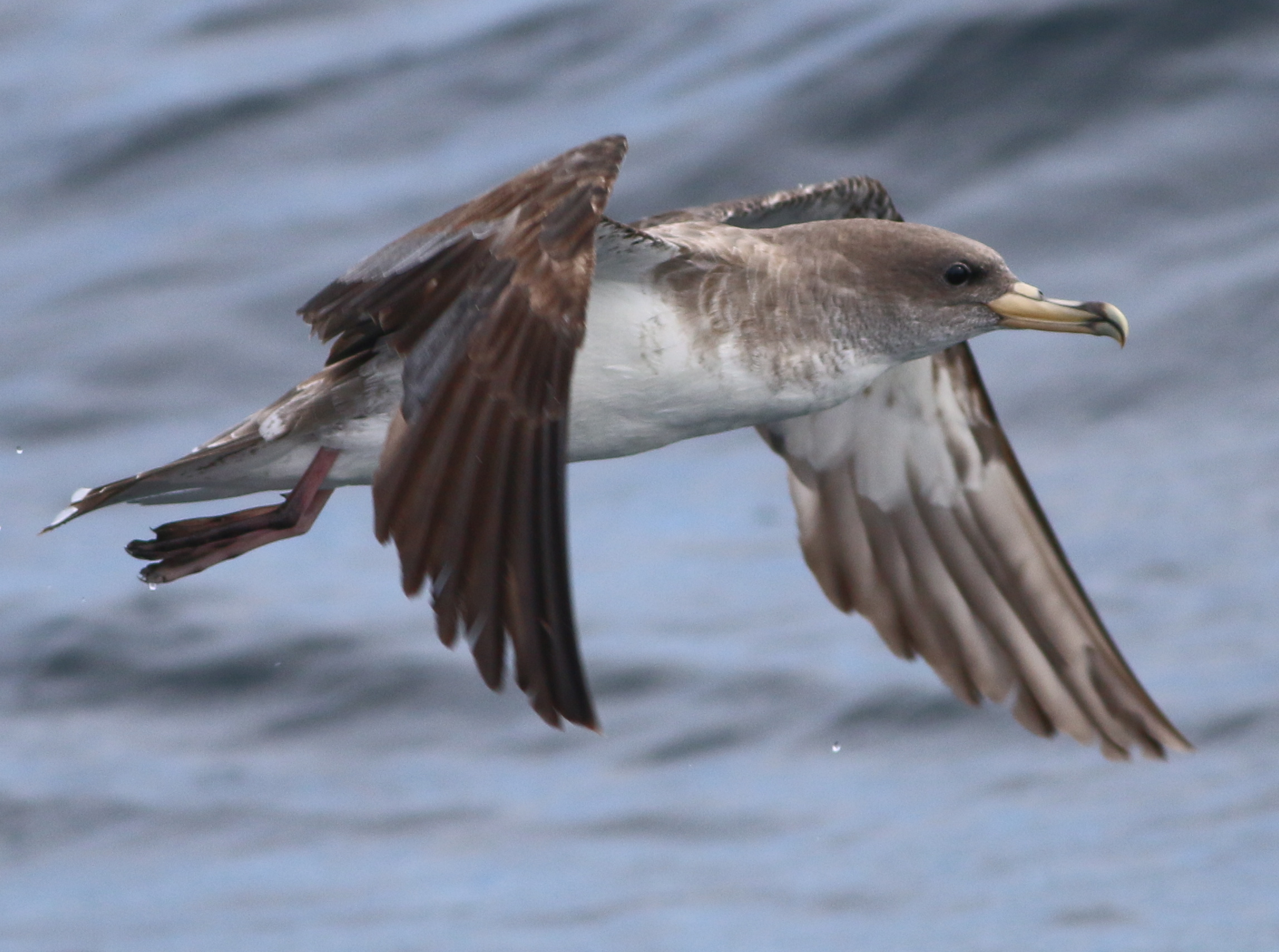
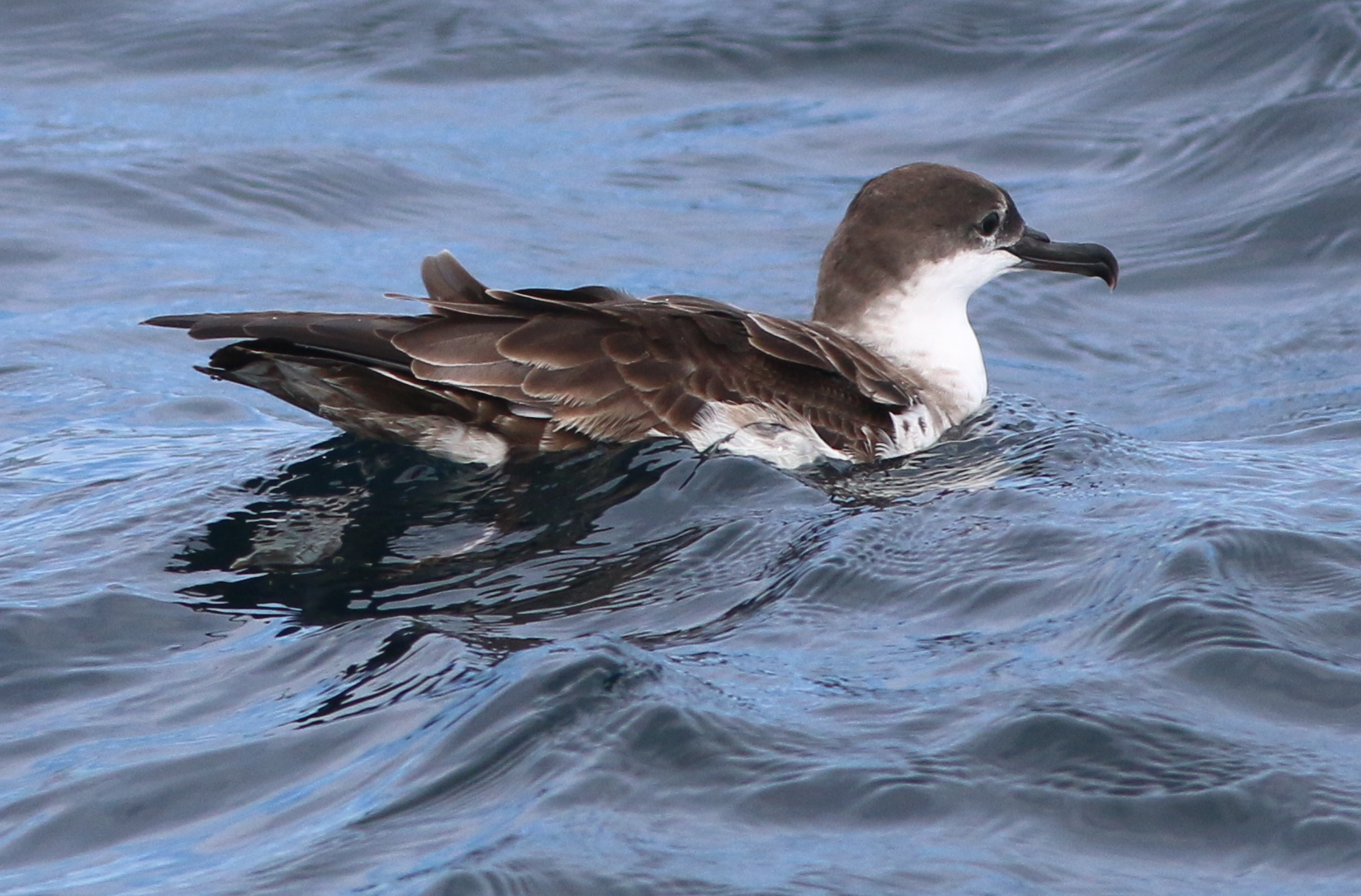
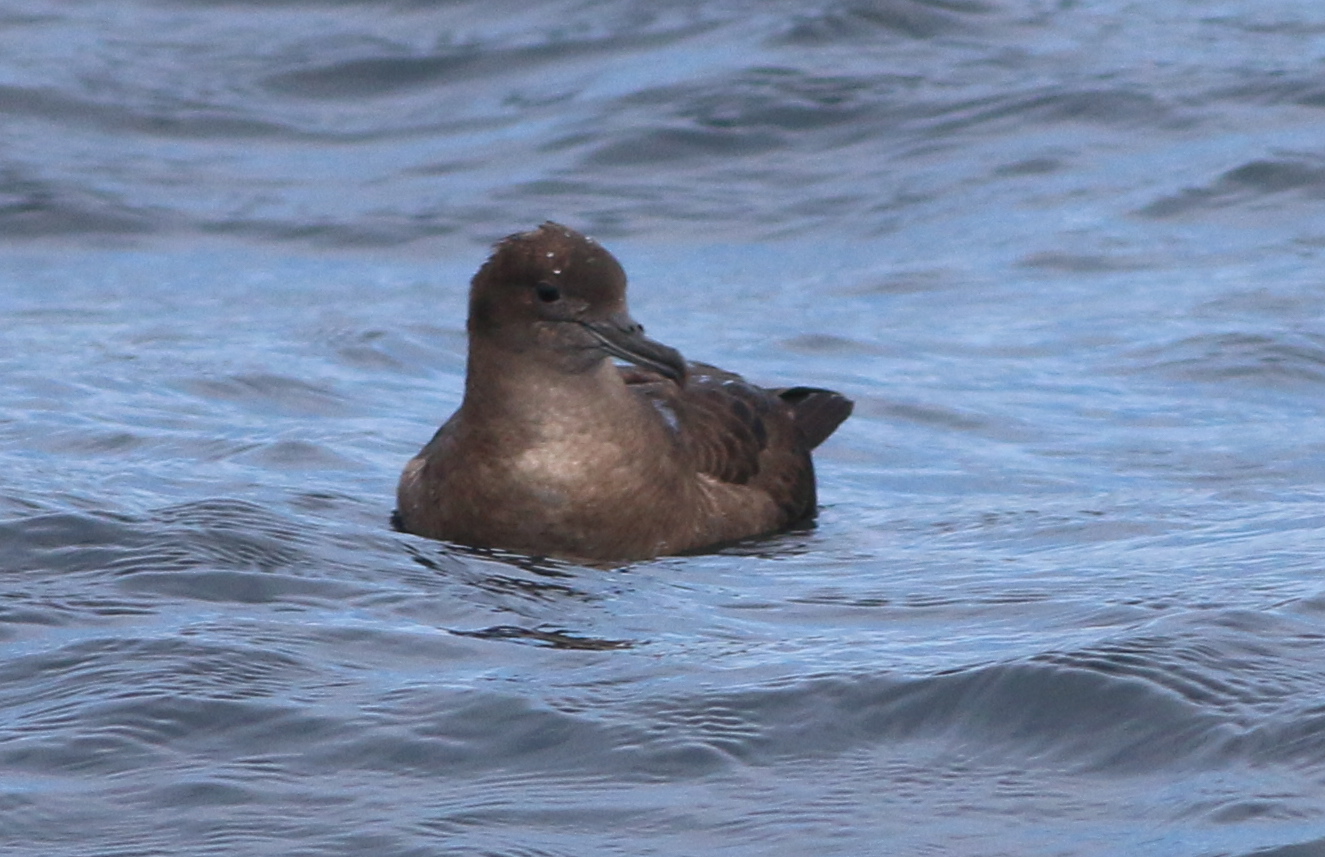
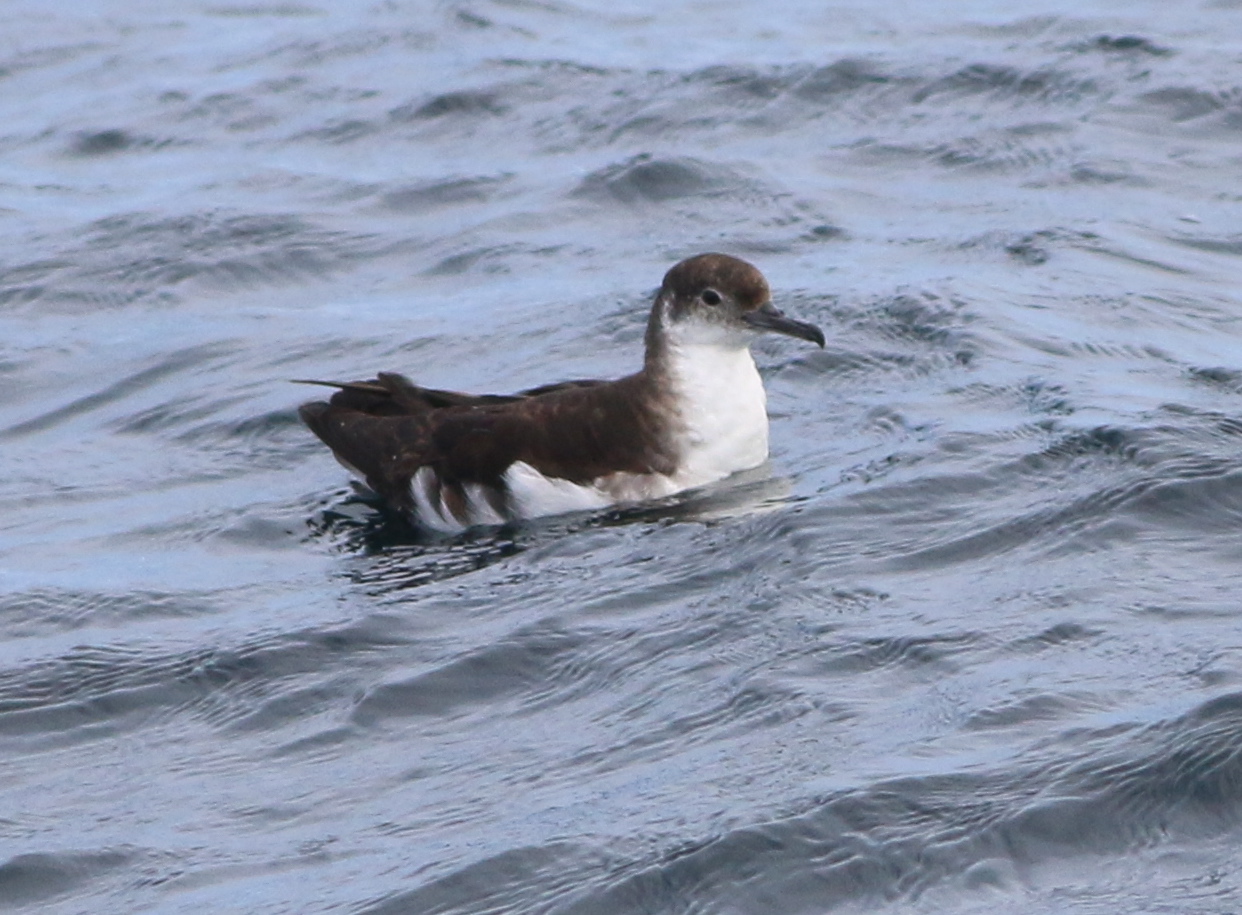
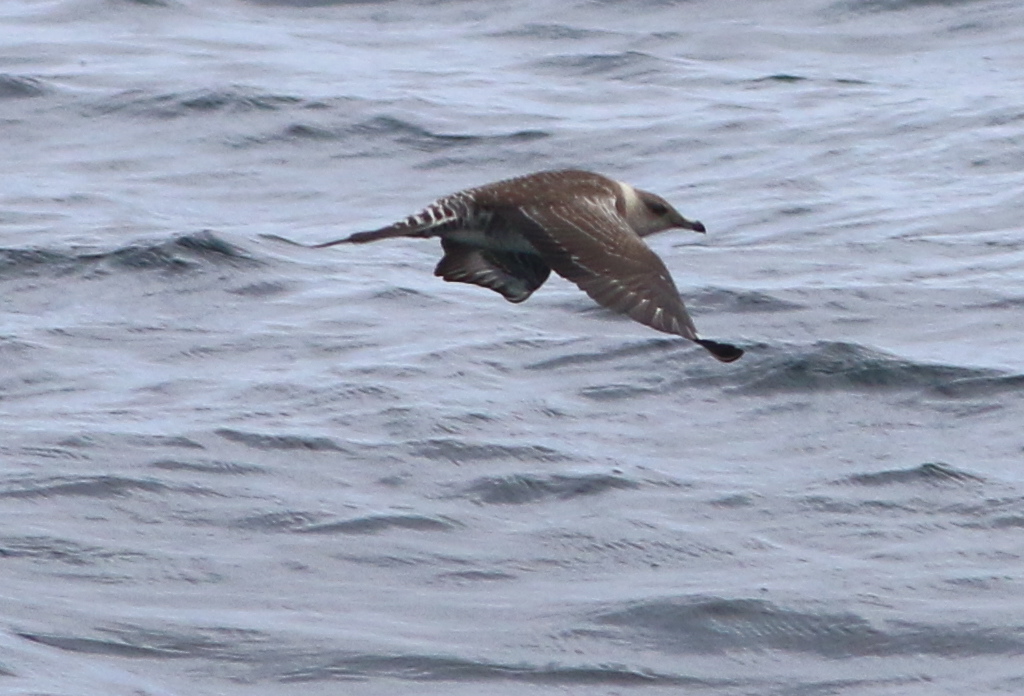
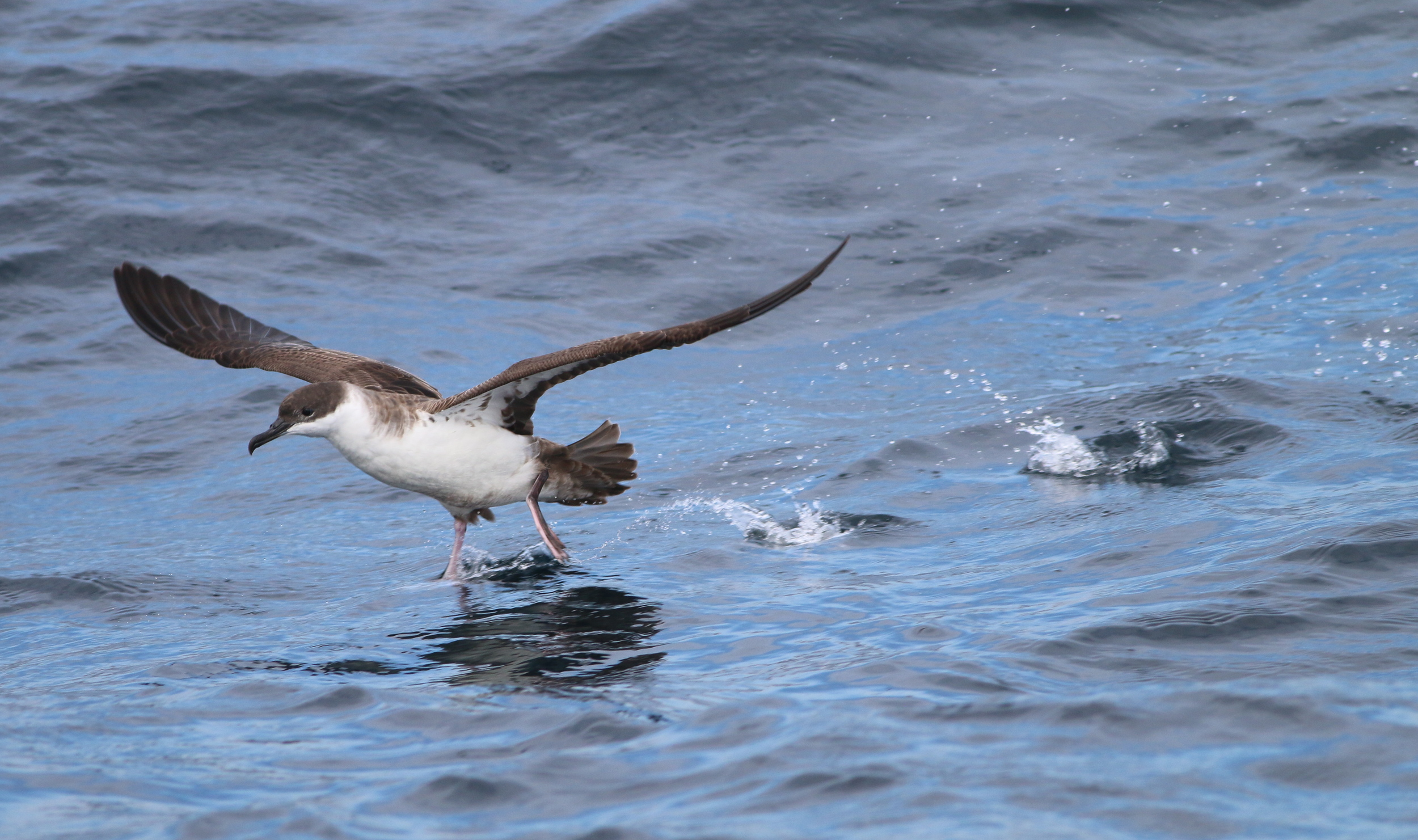
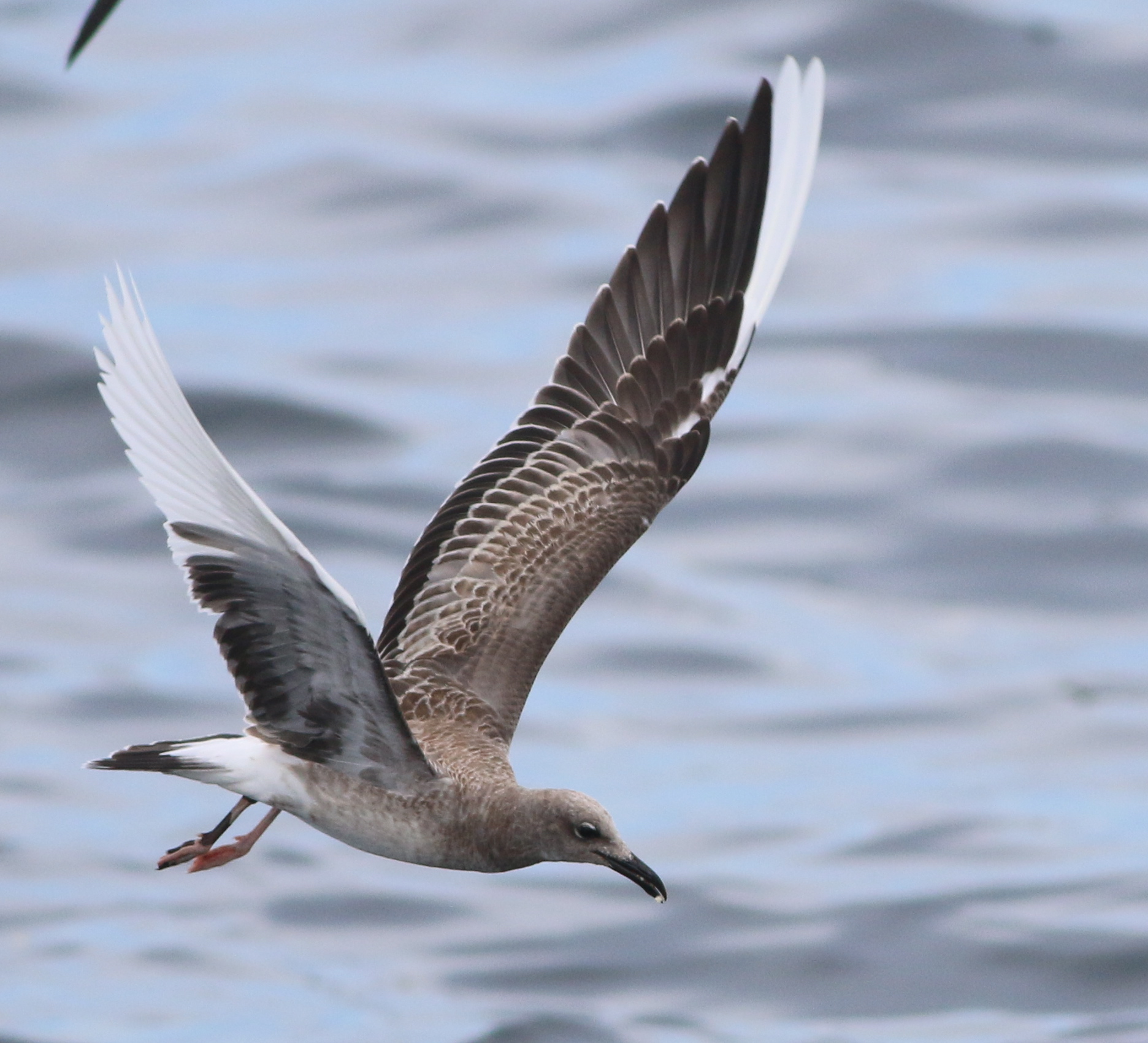
And feast they do. Terns, gulls, and shearwaters are all around us, diving towards the water and then careening away with the expertise of the seasoned mariners that they are. There must be hundreds of birds. The back of a whale breaks the water and moves smoothly through the surf until its pointed fin is erect. With perfect grace, the whale pulls it downward. It is so close that despite myself, I feel fear crawl up my neck at the thought of the behemoth swimming alongside our tiny vessel. Which it does. The displacement caused by the movement of the whale causes the fishing boat to sway back and forth. As its tail breaks the surface, it is so close that I can see the barnacles encrusted on its edges. That old emotion- fear, or whatever it was that made the hair on my arms rise as the whale swam by- dives into the depths with that whale. It is replaced by something that feels ancient, as though the whale had aroused some primordial recollection of an ancestor that had lived in those depths long before it evolved into me.
"This is incredible" I murmur. Peter Trull is standing next to me and overhears. "How so?" He asks. "I..." I struggle to find the words. I want to blurt out that it is magical, amazing, epic. That I have never seen anything like this. But it is more than such simple utterances. It is so much more than that! How am I supposed to explain the storm in my chest, the desire, the wonder, the awe. There is freedom in this water; there is freedom in watching these birds that live in a kingdom of endless oceans that I cannot possibly understand. These birds live with the ocean. For the shearwaters, it is home. Why am I so jealous of them? Is it because they are utterly unbounded, able to effortlessly cross the boundary between land and sea? That their domain is enormous compared to the tiny civilizations of humanity? I watch a Sooty Shearwater pull in its chocolatey wings and alight on the water. The waves toss it around like a toy boat in a river, but it is unperturbed. This is home. Anywhere it alights, it can rest.
"I feel like an alien here" I blurt to Peter. We watch the onslaught of birds. "This is unlike anything I have ever experienced. I feel as though I am in another world. And it is so unfamiliar, yet so intoxicatingly wonderful. I want to be here as much as I do not belong." Peter looks out at the horizon. The seabirds, the whales, the wind, the waves fuse together into a beautiful storm in which we are the eye. His eyes seem to be made of steel as he gestures with his hand. "People don't really know what it's like out here until they're out here. No one can know what this is like without seeing it. And we're lucky. This is everything, really. We get to see it all at once. This..." His voice trails off. I can barely breathe. "This is the North Atlantic."
He does not need to say anything more. I remember the Ancient Mariner lost at sea, the wretched man whom the albatross followed. And as that albatross "made the breezes blow...brought the fog and mist" these birds bring the tempest that is the North Atlantic. The desire to understand this world, to master it, defy it-to return to it, even- runs in my blood as surely as it did in the soul of the Ancient Mariner. Perhaps it is the water that is blood itself that yearns to return to its own. But I will not shoot the albatross. Never. Instead, I will gaze at the Cory's Shearwater that dances above me and feel the chasm that connects us in the strangest form of love there ever could be.
New Birds: 240
Red-necked Phalarope



